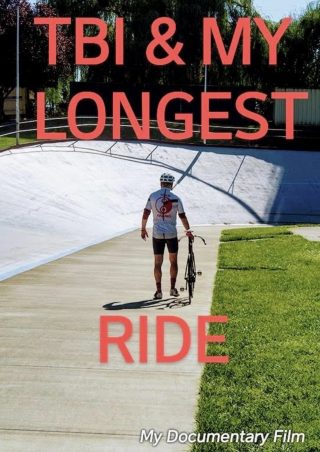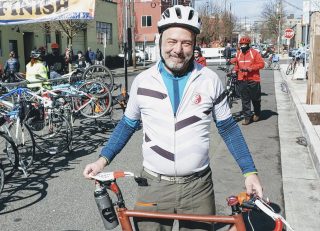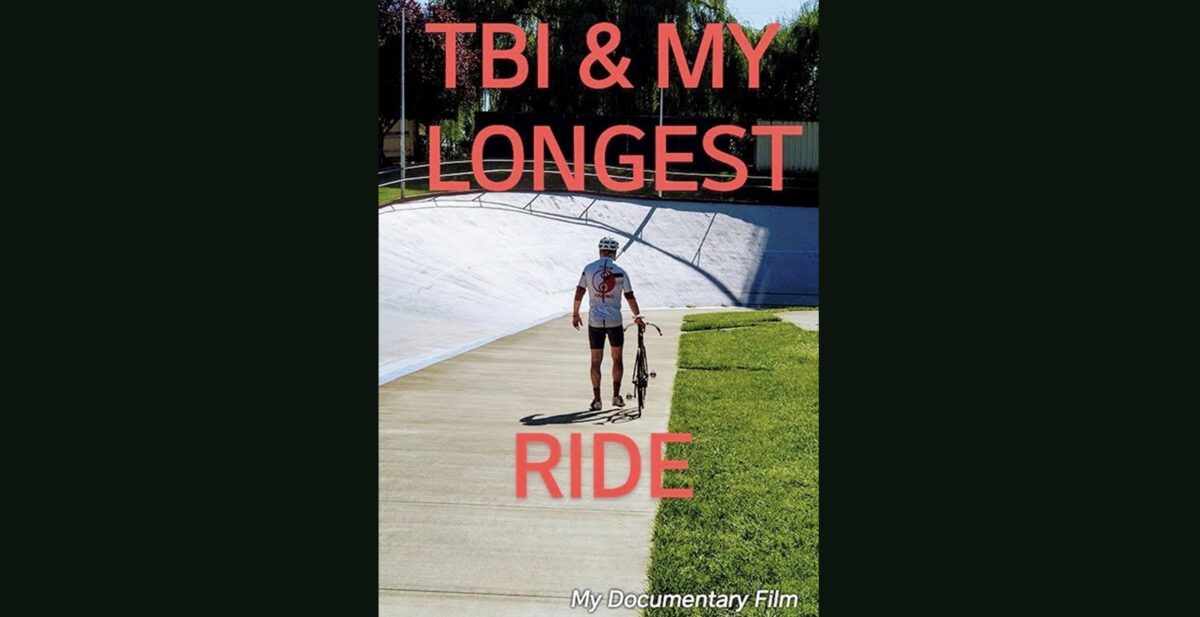
On a sunny summer evening just over 10 years ago Portlander Karl Moritz was riding home from work, pedaling toward Ladd Circle Park in southeast, when the unthinkable happened: For an unknown reason he lost control of his bike, veered into the adjacent lane and collided head-on with someone driving a car. The impact was severe. Karl, who was 47 years old and had three young children at the time, spent five weeks in a coma with multiple skull, spinal and leg fractures. He nearly died.
On Friday, Karl will host a screening of TBI & My Longest Ride, a documentary about his journey back to life — and back to cycling.
Advertisement

“I think it’s been a very long journey,” Moritz shared via an email with me this week. More than a decade after the crash his speech and brain function is still not 100% and he’s working to smooth out issues with balance and everyday physical tasks. What I’ve found so remarkable about Karl is that even though a bike crash nearly killed him, he never questioned whether he’d ride again.
In a guest post we published a year after his crash, Karl said, “I can’t wait to get back to work and on my bike! I have many miles to catch up on!” Two years later he shared the story of his first 100-mile “century” bike ride.
When he became disillusioned with traditional medicine and his standard care doctor, Karl looked to naturopathic options. His new regimen includes neurofeedback exercises, acupuncture, a keto diet, and high-intensity cardiovascular exercise. Turns out training hard on a bike helps make his brain stronger.
“I went to the track classes for three years before becoming certified at the Cat 5 level. Often a dedicated rider would be certified in the first year, but I’m taking this all in stride with my disabilities and trying to have patience.”
Karl was always drawn to singlespeed bikes and recently has become a devoted track rider. “I decided to build a fixed gear track bike for better exercise, that’s totally new for me!,” he shared. He took advantage of the track development program hosted by the Oregon Bicycle Racing Association at the Alpenrose Velodrome. Karl soaked up the sport like a sponge. He volunteered at track racing events so how fast Category 1, 2, and 3 racers work their magic. “I went to the track classes for three years before becoming certified at the Cat 5 level,” Karl shared with me, proudly. “Often a dedicated rider would be certified in the first year, but I’m taking this all in stride with my disabilities and trying to have patience.”
Patience has also come in handy on his film project. Karl originally wanted to focus on his recovery and share what he’s learned with others who have a traumatic brain injury (TBI). Then the Covid-19 pandemic threw a wrench into his plans. “I had to regroup. Now, the film is about me at the track spinning for neurogenesis and my three boys out on a bike ride.” Karl worked with Cheryl Green, a documentary filmmaker with acquired disabilities who helps make media more accessible to people with brain injuries. Green wrote a story about his crash and recovery and used it to win a grant for the project from the Regional Arts & Culture Council.
Advertisement

(Photos: Karl Moritz)
Building custom bikes has become a therapeutic hobby for Karl and his new love of track riding is the perfect “N+1” excuse (the tongue-in-cheek) cycling principle that says the correct amount of bicycles to own is the number you currently, plus one more). His latest project is a 2002 Fuji track frame he repainted with a mix of vintage and custom decals and that can be easily switched between the track and the street. The street version has a brake, lights, and no cleat-required pedals. “I can only hold a track stand for about a minute so I’m never clipped in the city because I’m afraid of falling over at a stop light,” Karl said. “It’s an acknowledgement of my disabilities.”
Being vulnerable and sharing his recovery with more people is a way for Karl to help those who’s had similar injuries. He says he wants people to hear him speak in the film because “Speech is still my biggest hurdle to overcome”.
Given what happened, Karl is lucky to be able to spin the cranks of a bicycle again. And like so many of us, he wants to spread this joy with people he loves. Those toddlers we first saw in photos on bikes with Karl back in June 2010 aren’t so little anymore. “When they become teenagers,” Karl shared. “I would like to build them a bike for a special gift.”
You can meet Karl, see his track bikes, and support his recovery at a special online screening of TBI & My Longest Ride this Friday December 18th. After the film he and filmmaker Cheryl Green will host a Q&A session. The event is sponsored by Brain Injury Connections Northwest and will be fully accessible with ASL interpretation, audio descriptions and live captioning. Registration for the free event is required and available via Zoom.
— Jonathan Maus: (503) 706-8804, @jonathan_maus on Twitter and jonathan@bikeportland.org
— Get our headlines delivered to your inbox.
— Support this independent community media outlet with a one-time contribution or monthly subscription.



